What Is Software Engineering [2023 Overview Guide]
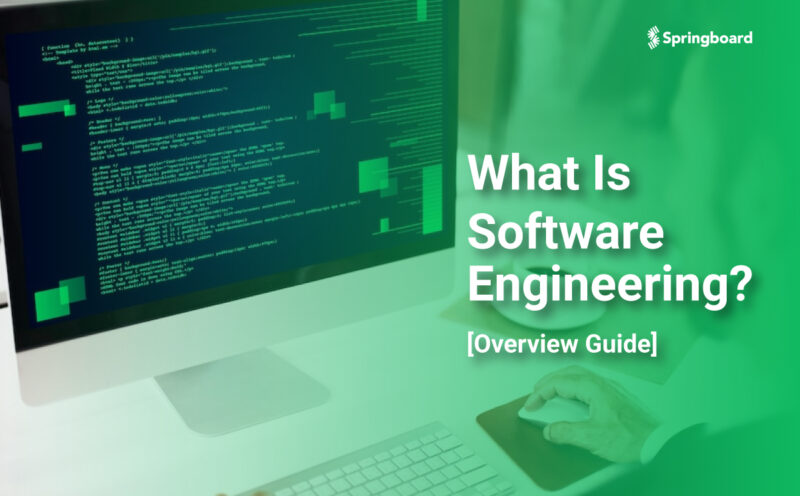
In this article
A career in software engineering is quickly becoming one of the most exciting (and lucrative) paths in the tech industry. U.S. News reports that the median salary for software engineers is well into the six figures, and even rated software engineer as one of the five best jobs today.
But the term “software engineer” leads to some confusion. Despite their differences, the titles of software developer, software engineer, and programmer are oftentimes used interchangeably. And it’s not just laypeople who make this mistake—even seasoned tech veterans continue to conflate the three.
That’s why we’ve written this guide. Below, we’ll detail everything you need to know about software engineering, and how it differs from other similar roles.
What Is Software Engineering?
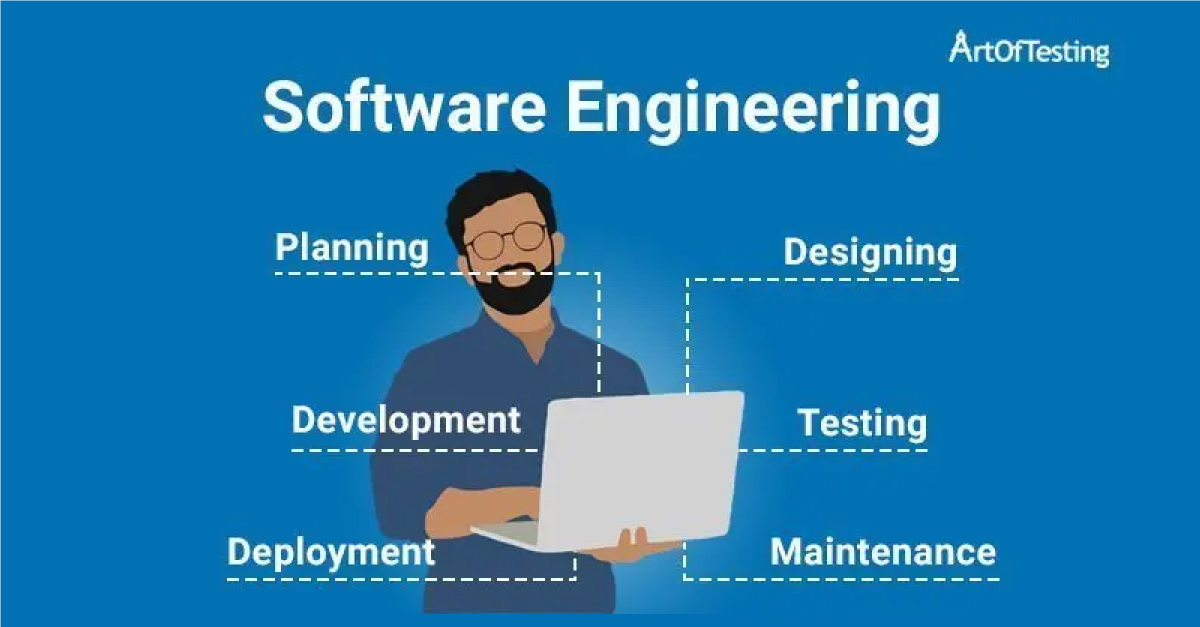
Software engineering is the process of designing and creating software. This includes all stages of the software development process, including designing, developing, maintaining, and testing.
How Is Software Engineering Used in Real Life?
The software used on our computers, phones, TVs, or any other digital product is the result of software engineering. Pieces of software that you can purchase—such as video games, photo editing software, or word processing software—are also made by software engineers. Essentially, all digital interactions happen because of software.
Understanding Software Engineering
Here, we’ll cover some background information that will help you better understand the field of software engineering.
The History of Software Engineering
As mentioned earlier, software engineering is used in the development and launching of rockets, and this is actually where the term was coined. Before the 1960s, the title of “engineer” was reserved only for complex physical machines. But as computer scientist Margaret Hamilton worked on the guidance and navigation systems for the Apollo missions, she decided the work done by her team deserved the same title. Within the decade, the first NATO software engineering reports were also released.
It took a while for the term to take hold, but by the 1970s, new ideas and programming languages such as Pascal and C started to appear along with the first personal computers (PCs). In 1979, Seattle University began offering its first degree in computer engineering.
In the 1980s, the C++ programming language was introduced, and object-oriented programming became popular. In 1989, the internet made its first appearance. From the 1990s onwards, video game consoles, home computers, phones, smartphones, tablets, and all sorts of technological innovations using complex software have become prevalent in our society.
The Goals of Software Engineering
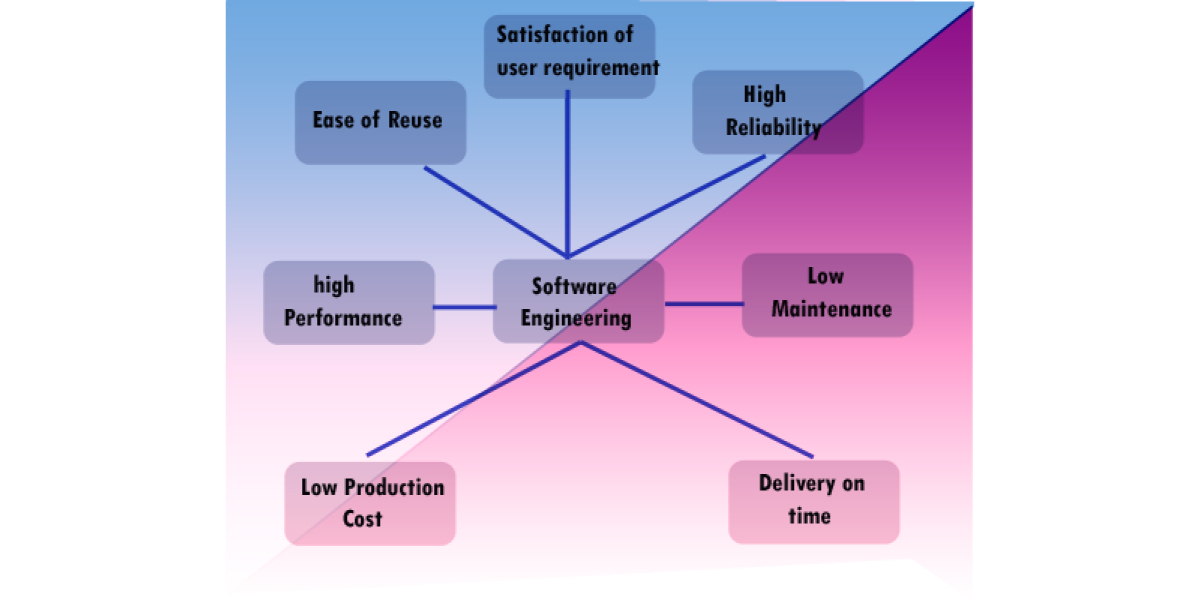
A primary goal of software engineering is to enable the average user to interact with a computer—software allows us to send commands with the click of a button rather than typing out lines of code into a terminal. Software even helps users create complex projects with limited technical knowledge, such as website building software or game engines.
Is Software Engineering the Same As ….?
There are many niches and individual fields within the software industry, so we’ll cover a few here that are closely related to software engineering.
vs. Machine Learning
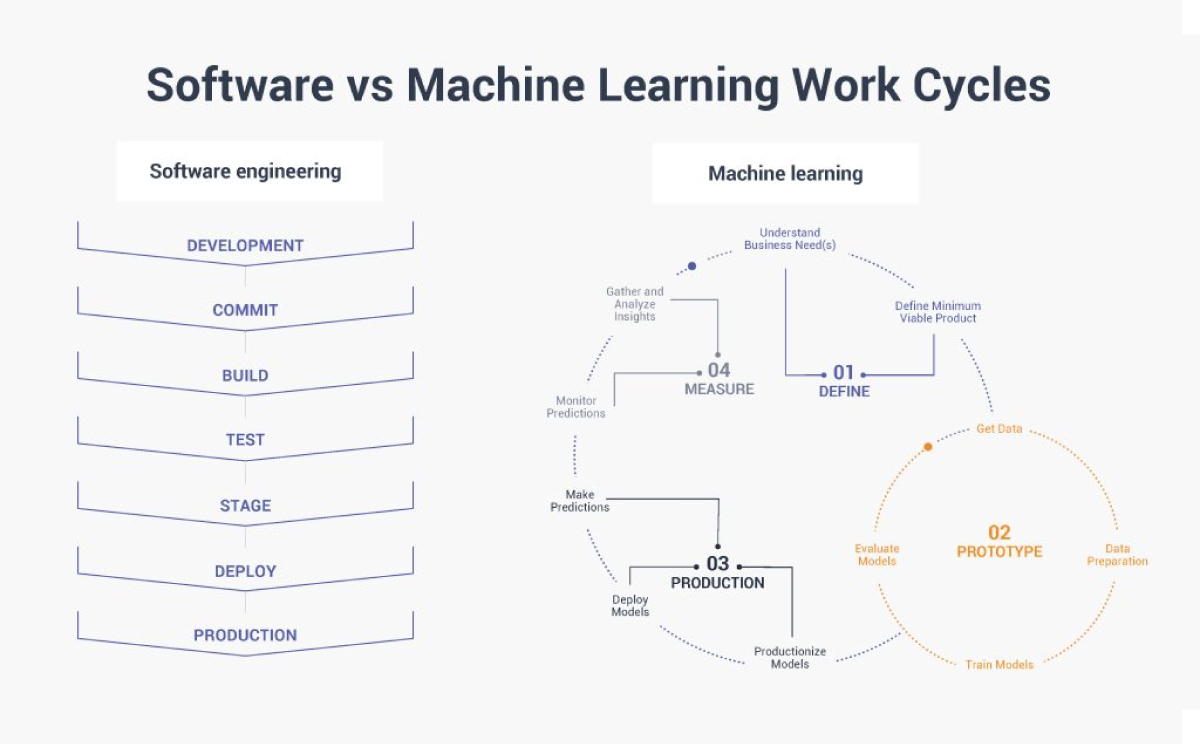
Machine learning is a discipline of artificial intelligence (AI) that allows a software application to learn from data fed to it and improve performance on tasks. It is related to software engineering in the sense that coding is required to design and manage these kinds of systems, but machine learning and software engineering are two very different disciplines.
vs. Computer Science
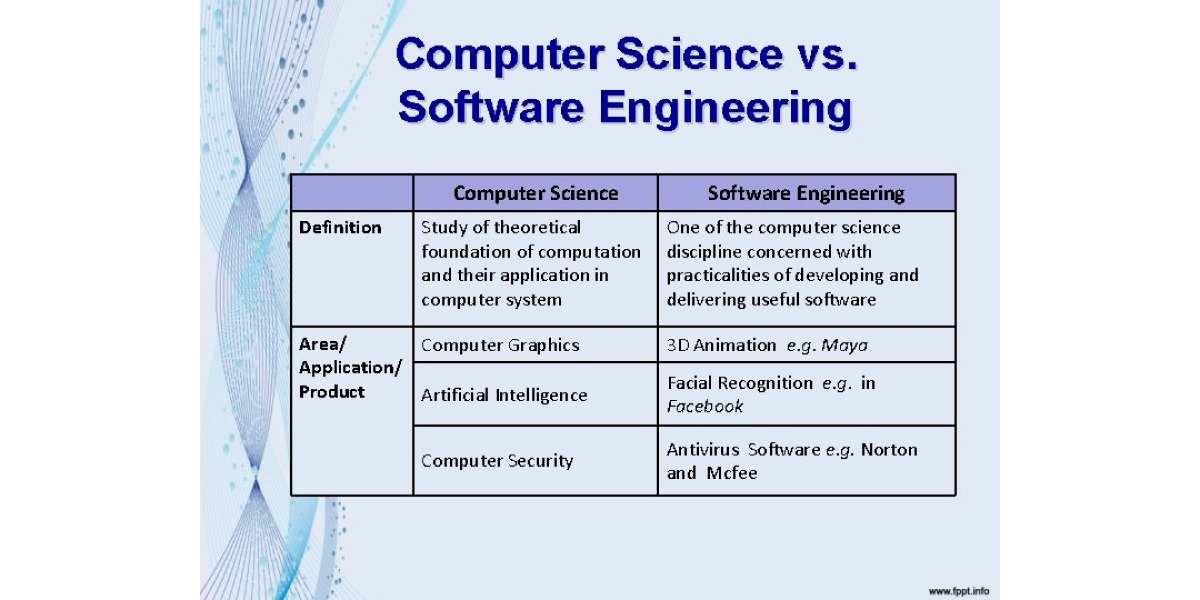
Computer science is an area of study related to how computers work and the various ways we can interact with them. Many professional software engineers have degrees in courses titled Computer Science, where they study topics like programming languages, operating systems, and algorithms. Unlike software engineering, the study of computer science isn’t directly connected to the development of software.
vs. Data Science
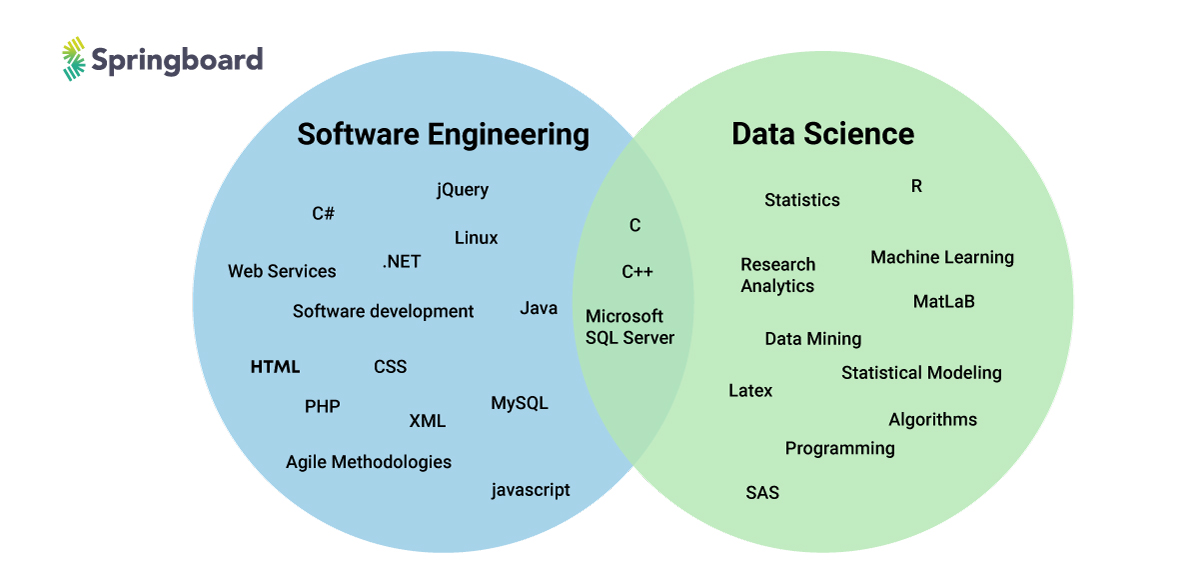
Data science is a specific area within the software industry that deals with the analysis and manipulation of large data sets. While programming languages are used to create programs and algorithms that can store and sort the data, the field is not connected to the creation of user software in the way that software engineering is.
Get To Know Other Software Engineering Students
Julia Ayres
Software Engineer at Northspyre
Alyssa Menes
Software Engineer at Progyny
Jack Mayer
Software Engineer at Whitepages
Understanding the Software Engineer
Now that we’ve covered the software engineering discipline let’s take a closer look at what a software engineer actually does.
What Does a Software Engineer Do?
The particular responsibilities of software engineers vary significantly depending on the industry they work in, but generally, they work on designing, developing, and maintaining software applications.
This includes a number of jobs such as writing, optimizing, and debugging code in order to develop new software or expand and improve on existing software.
Software Engineering Career Opportunities
In this section, we’ll cover the job descriptions and salaries of some of the roles within the software industry that software engineers can fill.
Software Engineer
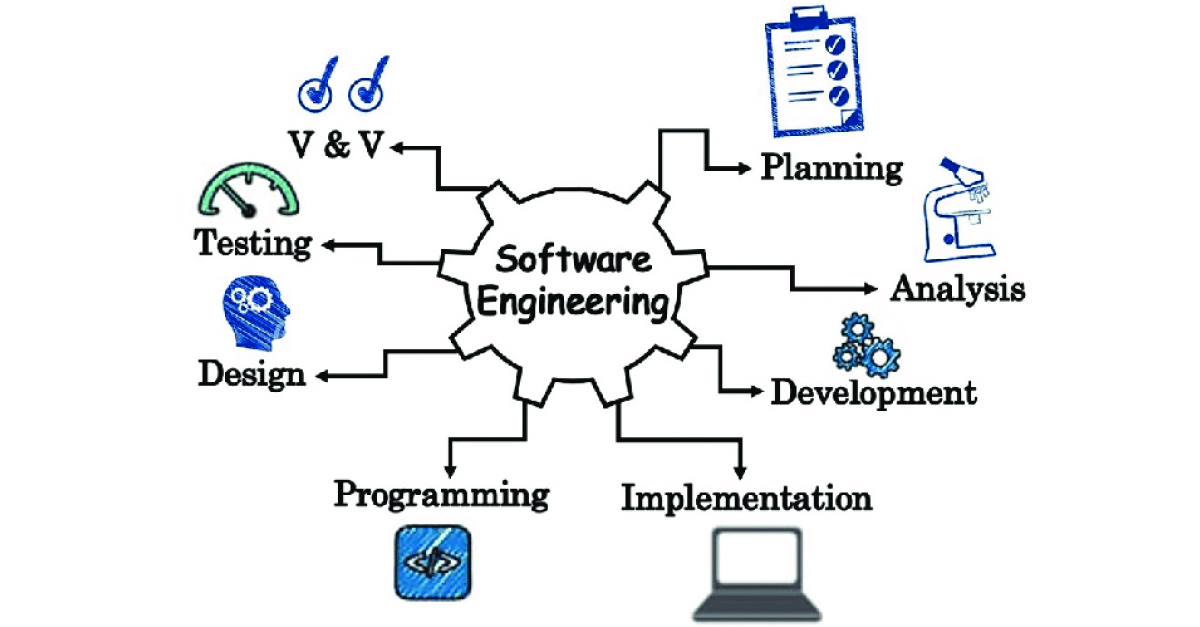
While more specific job titles are often used within the software industry, you will also see job adverts searching for software engineers. This term is often used by SaaS (Software as a Service) companies that develop and support large, complex pieces of software and employ hundreds of engineers to work on it.
What They Do
Software engineers generally work in teams to support, maintain and develop a certain section or feature of a larger piece of software. Responsibilities are often split between colleagues based on each team member’s specialties, as there are many areas of the practice of software engineering and development that you can excel in.
How Much They Earn
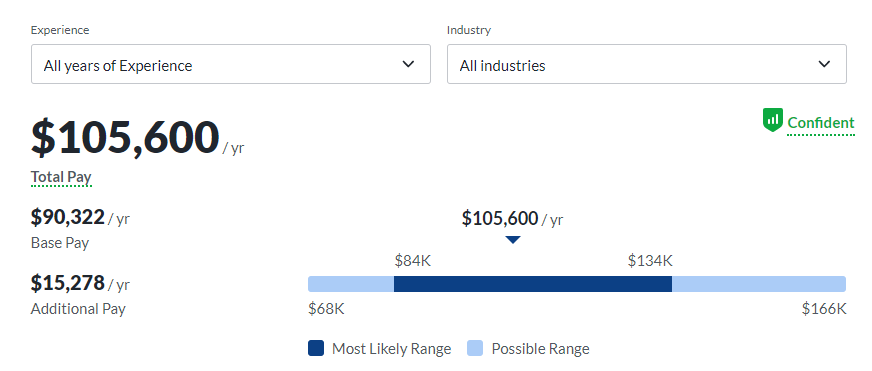
Average salaries for software engineers can range from $68,000 – $166,000, according to Glassdoor, with high salaries at large firms such as Google reaching up to $270,000 for an experienced software engineer.
Skills Needed
Common software engineering skills listed in job descriptions include:
- Proficiency in a programming language such as C++
- Excellent time management skills
- The ability to write and develop software
- Creating and running tests for software
- Management and maintenance of software
- Debugging
- Software project management skills
Front-End Engineer
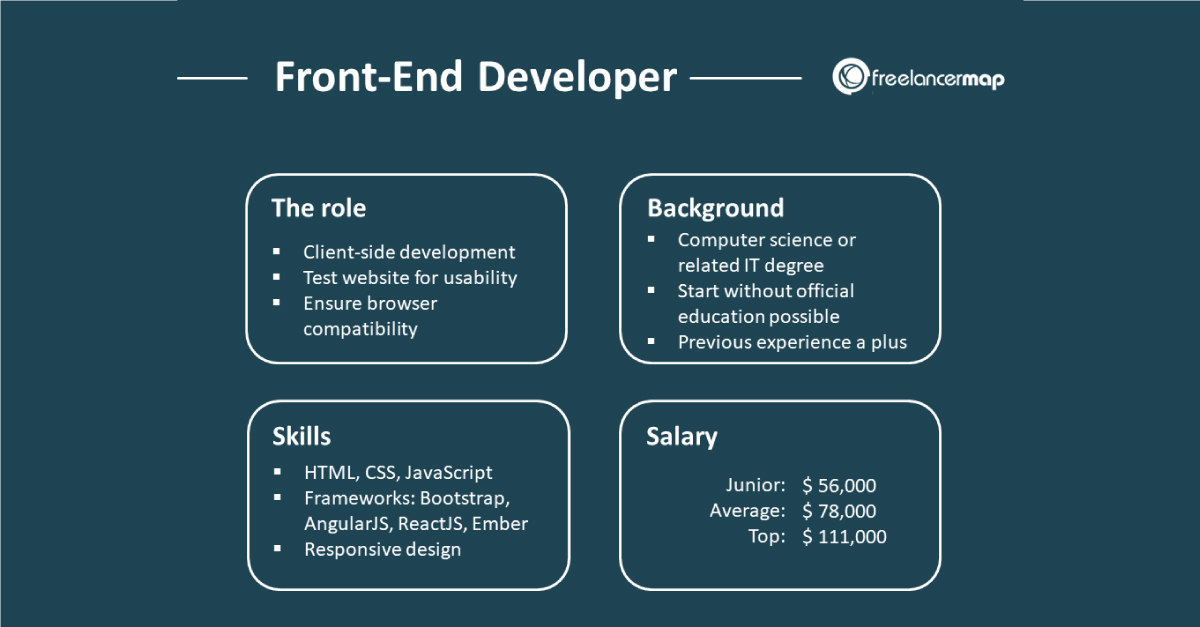
Front-end engineers are mostly found in the web development industry and specialize in programming languages like Python.
What They Do
Front-end engineers create front-facing elements of websites, applications, and interfaces. While the design team will take care of the art and aesthetics of the product, it’s the front-end engineer who implements the designs into an interactive interface that the customers can use to navigate the product.
How Much They Earn
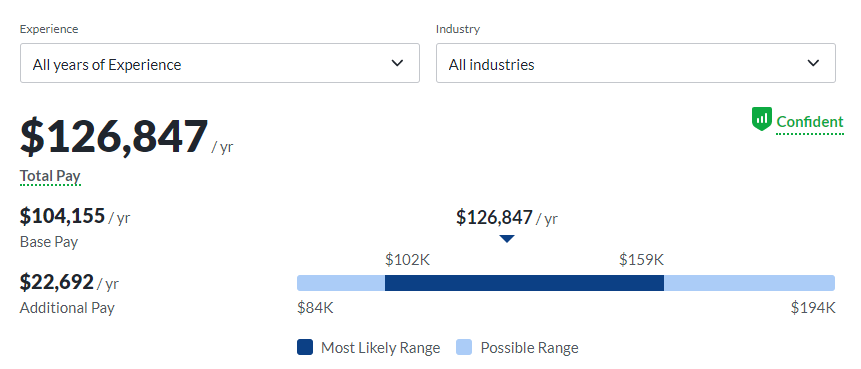
Front-end engineers receive an average salary between $84,000 – $194,000 depending on skill level and industry. At top companies like Meta, an experienced engineer can make up to $274,000 per year.
Skills Needed
Commonly required skills for front-end developers and engineers can include the following:
- Proficiency in Python, HTML, Javascript, and CASS
- A basic understanding of user interface design principles
- Knowledge of APIs
- Some understanding of back-end engineering fundamentals
- Optimizing websites for multiple devices
- Debugging and testing code
Back-End Engineer
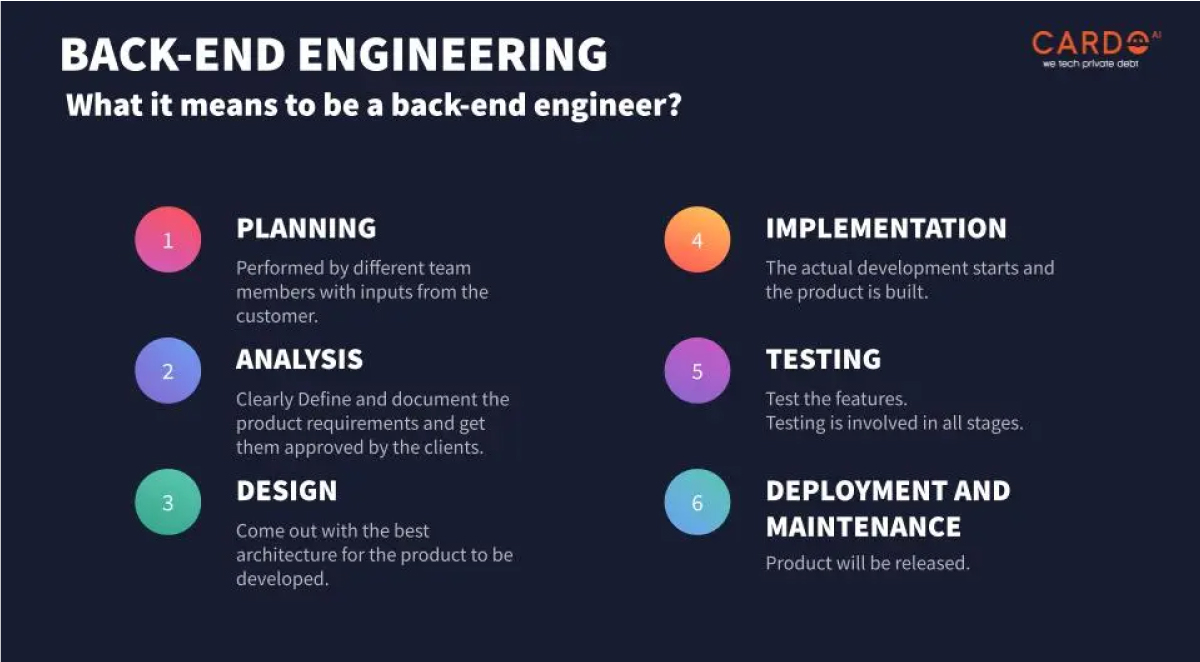
Back-end engineers are also part of web development and specialize in server management and data storage.
What They Do
Unlike the front-end role, back-end engineers work on the parts of a website, application, or piece of software that can’t be seen from the user’s perspective. This includes handling the server and the back-end of the APIs, as well as managing and storing user data according to best security practices.
How Much They Earn

Back-end engineers can expect to earn between $99,000 – $204,000 on average, with positions at top companies such as Google paying as much as $305,000 per year for senior engineers.
Skills Needed
To excel as a back-end developer, you can expect to need skills such as:
- Proficiency in a programming language such as Java, PHP, Python, or Ruby
- Soft skills for cooperating with front-end engineers
- Designing data storage solutions
- Integrating user-facing elements with back-end logic
- Debugging and optimizing code for scalability
Related Read: Front-End vs. Back-End Development: What’s the Difference?
Getting Into Software Engineering
If you’re considering getting into software engineering, here is some basic information to help get you started.
What Skills Will You Need?
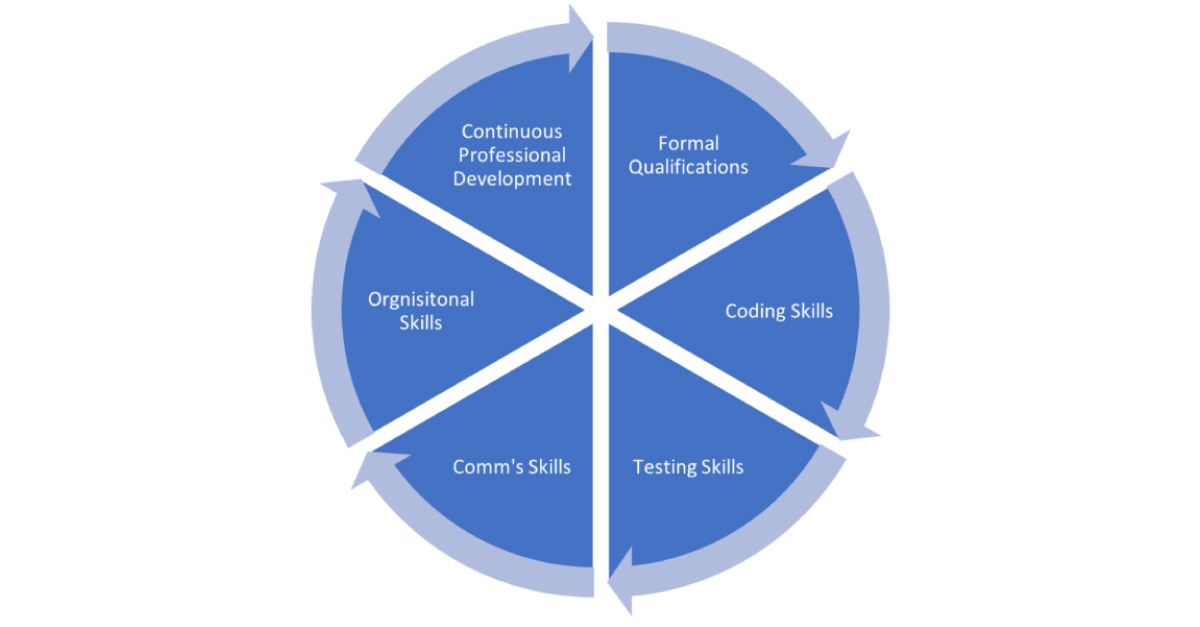
There are a number of general software engineering skills that make up the fundamentals of the discipline and are used no matter what niche or industry you go into. One of the most important skills is learning to code and becoming proficient in a relevant programming language. Other skills include:
- Good knowledge of computer science fundamentals
- Skills in optimizing and cleaning up code
- Debugging and bug fixing skills
- Critical thinking and time management skills
- Public speaking and communication skills
What Background Is Preferable?

The typical background of a software engineer includes a college degree in a software engineering program or computer science degree. However, other forms of education are becoming more commonplace, and big tech companies such as Microsoft are moving toward removing traditional degrees as a requirement for hiring. Instead, more and more aspiring software engineers are attending online coding bootcamps that aim to produce job-ready graduates. These bootcamps take much less time than a college degree and are far more affordable, leading to the industry growing from 2,178 graduates in 2013 to 24,975 graduates in 2020.
Where Should You Start?
There are various ways to start your software engineering journey, including free online software engineering programs, software engineering certification programs, self-study, or bootcamps. If you’re a complete beginner and don’t feel ready to start a bootcamp right away, there are also prep courses that can take you through the absolute basics and get you ready to begin the full curriculum.
FAQs About Software Engineering
Here are some frequently asked questions about software engineering.
Is Software Engineering a Good Career?
Yes. Software engineering is a well-paid career with high job satisfaction, and it also has plenty of opportunities for promotions and moving around. Large companies operate all over the world and sponsor visas to help you and your family live in your preferred country and also provide competitive benefits.
Qualified software engineers also enjoy job security, with the U.S. Bureau of Labor Statistics projecting a 25% job growth rate between 2021 – 2031, which is 20% higher than the average.
Related Read: 12 Highest-Paying Software Engineering Jobs
Can You Get Into Software Engineering Without a Degree?
While qualified software engineers do typically hold a college degree from a software engineering program, it is becoming more common for companies to omit degrees from the hiring requirements.
With the rise of online bootcamps, the accessibility of personal computers, and the plethora of self-study materials available on the internet, there are many methods to study the skills of software engineering other than college degrees.
Can You Land a Software Engineering Job Without Experience?
There are entry-level positions for new graduates and junior software engineers, but it’s always best to build up as much experience as possible. This can be done by picking up freelance, open source, or volunteer work during your study and working on personal projects that can be included in your software engineering portfolio.
If possible, you can also gain valuable experience with a software engineering internship.
Since you’re here…
Interested in a career in software engineering? Join our mentor-led Software Engineering Bootcamp or our foundational Software Engineering Course if you’re just starting out. We help people make the switch every day (just peep our reviews). You can do it, too!





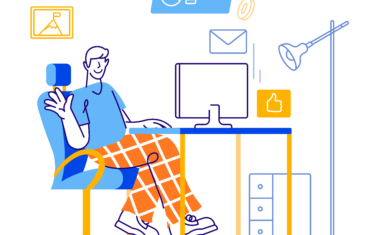
![12 Highest-Paying Software Engineering Jobs [2023 Guide]](jpg/12-highest-paying-software-engineering-jobs-2023-guide-380x235.jpg)